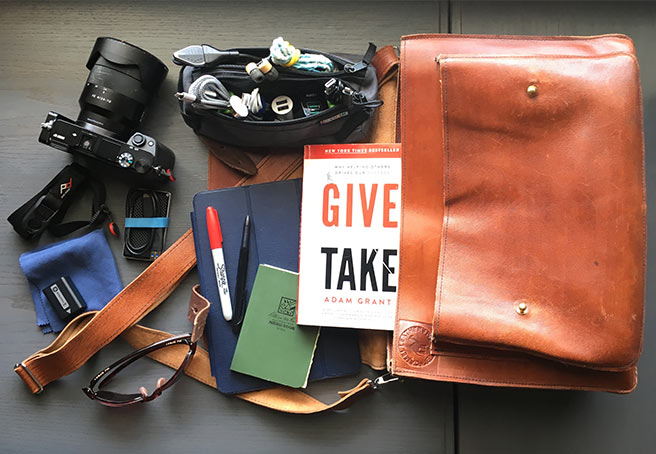The reading are more in depth explanation of this Jan Chipchase’s Ted talk whereas now we were given a boarder view. He talk about the fundamental of carrying behaviour, which provides insight into the user activities, values, beliefs and fear. We also strategies where we should be putting our stuff to prevent us from forgetting them. I would always categories my things and place related item together, for example my lip balm and ointment was place at the same small pouch to allow me to find them easier in my school bag. I will also think about how frequent I will be using it and place them in different slot in my bag, so that I can just slip my hand without taking down my bag.
Jan Chipchase also uses examples to describe the term range of distribution. The Shanghai lady given me an insight of their risk of theft is high from the way she react on her shopping trip. In comparison, Singaporean are more relax that we simply place our phone on the coffee shop table where the phone are still visible to us. There are also cases that their phone are being stolen away however, the crime rate are lower as compare in Shanghai.
One of the part where he mention about a point of reflection. I was nodding all the way as it is something I do every time I leave a place. I will do the mental checklist like he said. This widespread behaviour could possibly due to incidents like we have forget our item before. So just to make sure we doesn’t make the same mistake we would take extra caution.
In future, there might be automated systems to predict our shopping habits. I felt it is really possible if most of the company would corporate together to shared the information among them. However, he mention about the way Amazon could do by sending the product to our house might only last for a period of time. Looking in Singapore context, I would imagine I get many different product each week/day that would be kind of irritating. The feeling given is like hard selling, although we can choose not to pick up that item. This also reminds me of how our advertisement on the browser are linked to our browsing history. If you are searching air ticket for the past few day, the advertisement in Facebook or other website would cater to what did you search for.
In conclusion, we would all have reason for the things we carry that are fundamentally tools for our survival. We also develop our own way of carrying behaviour that could be influence from our surroundings or personal reasons. Nonetheless, technology advancement would constantly changing our tool and idea of survival.
